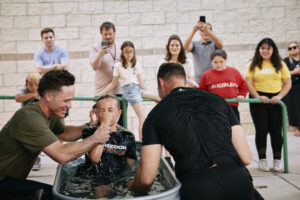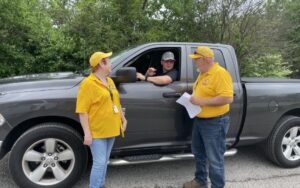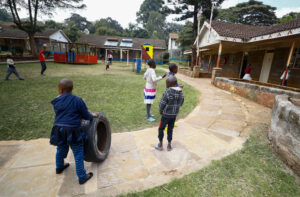
During Passion Week this year, I contemplated how it took the empty tomb to flip the narrative about Jesus. Leading up to the cross, the narrative was scandalous. Jesus was labeled a lawbreaker, usurper, heretic, and pretender. To most, the truth of the scandal was substantiated on Friday at the Cross. They supposed He wouldn’t allow the crucifixion if he wasn’t all the things they said about Him.
In I Corinthians 1:23, Paul referred to the message of the cross as a σκάνδαλον (scandal). The NASB translates it as a “stumbling block” to the Jews. In other words, the cross substantiated the scandal that He was all they said about Him, and it stood in the way of Jews believing in Him as the Christ, the promised Messiah.
Leading up to the cross, they repeatedly challenged Him to confront the scandal. “Tell us,” they said, “If you are the Son of God! Say it! Defend yourself against the narrative.” But Jesus refused to do what they demanded of Him.
One must ask, “Why didn’t He do it?” Most probably, it was because He knew that no matter what He said, it would take the empty tomb to show who He was. No matter what He said or did, it wouldn’t be enough. It was only by the resurrection that the narrative could be flipped. That was the “mic drop” moment.
Southern Baptists also have been scandalized. Unlike Jesus’ scandal, ours is very real. There have genuinely been instances where Southern Baptists have failed in our due diligence to protect children but rather protected the church. At times, instead of properly reporting the truth, we repressed it. Instead of genuinely caring for survivors, some of us shamed them by how we treated them.
There are some authentic things that Southern Baptists are doing to correct the mistakes of the past. I am thankful that these things are now on our radar screen.
But will these be enough to flip the narrative? I don’t believe so if we want to do more than check boxes.
Studies show one-third of women will be sexually abused by age 18. For men, the number is around 25 percent. These are now men and women sitting in our churches every Sunday who are still carrying the pain of the trauma from abuse at home, from extended family, or in their neighborhood or school. All places they assumed they were safe.
Adult survivors of sexual abuse are an unreached people group outside of your local church.
Adult survivors of sexual abuse are an uncared-for people group within your local church.
How will you care for them if you have no ministry for them?
When you implement a strategic survivor ministry, some will come from the community to get help and in the process discover Jesus. Others from inside your local church will experience healing and become a great and mighty army of healers to other survivors.
In the church I pastored for over three decades, we were deeply involved in ministry to survivors of childhood sexual abuse. I was privileged to see men and women experience the joy of healing from this trauma through the “one another” process. This is the body of Christ, responding to the call to be His instruments of healing to one another. When that happens, no one can say we are only “checking boxes.”
Ministry to survivors is a resurrection event. It’s an “empty tomb” kind of proof that can flip the narrative and stop the scandal.
















